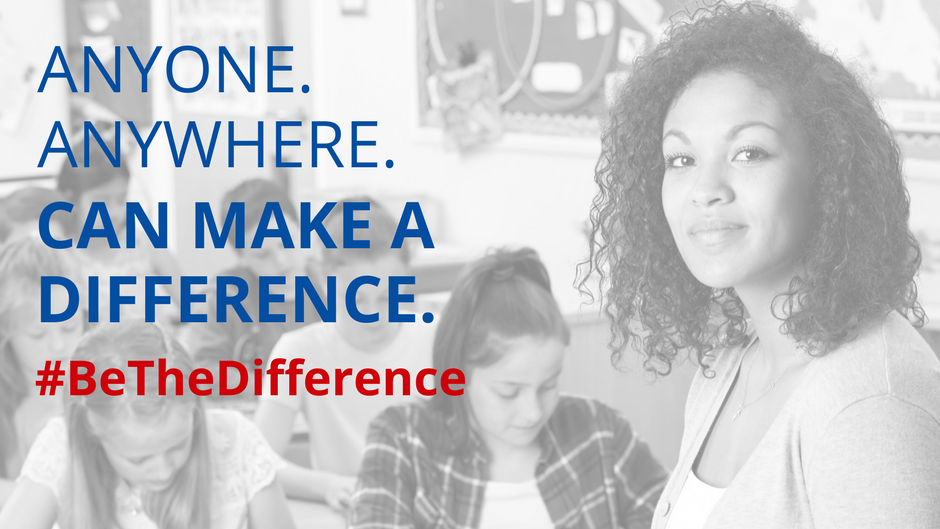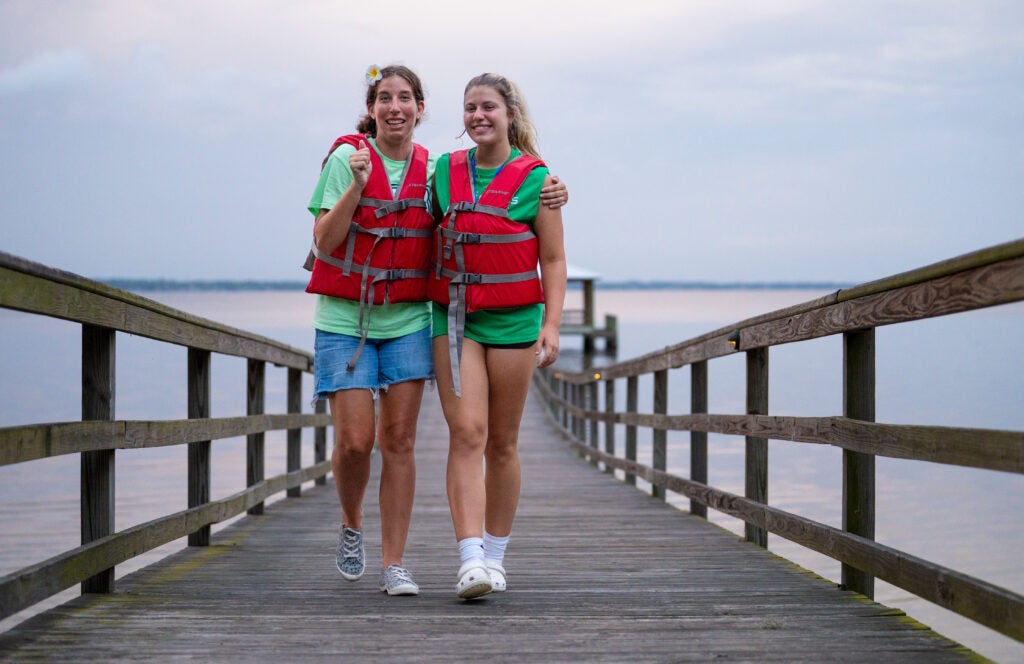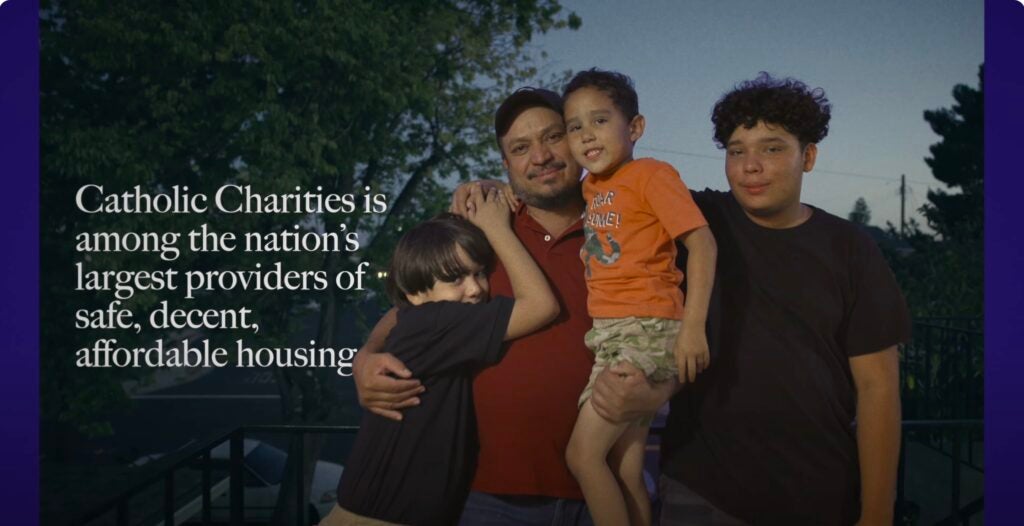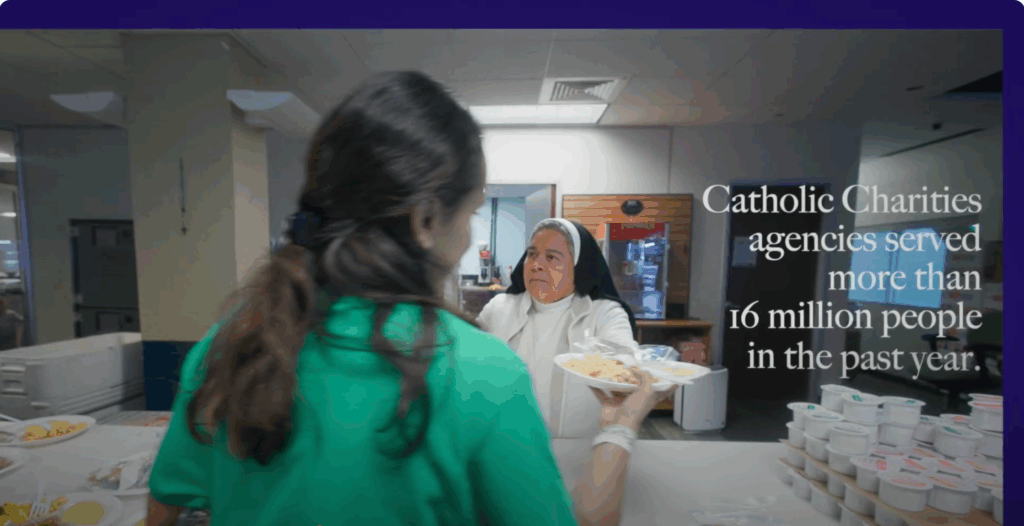

The Behavioral Health Services program of Catholic Charities of Central Florida is expanding Mental Health First Aid training throughout the Diocese of Orlando. Mental Health First Aid is an evidence-based course that teaches participants how to identify and respond to signs of mental illness comparable to CPR for someone experiencing a medical crisis. The course helps to increase knowledge of mental health problems and dispel common myths surrounding various mental illnesses.
Catherine Galda, Behavioral Health Services program director, explains how Mental Health First Aid training is a key part of achieving one of the main goals of the Behavioral Health program—removing the stigma of mental health issues that often lead people to forego or delay treatment:
“We know that nearly 1 in 5 adults in the U.S. lives with mental illness and only 41 percent of people with a mental illness use mental health services in any given year. [We] seek to remove the stigma that has made it difficult for people to seek help. To achieve this goal, mental health education and awareness building are necessary.”
Studies show the program works in exactly this way—it has been shown to reduce the social distance created by negative perceptions of individuals with mental illnesses, and participants have been shown to increase their confidence and likelihood to help an individual in distress.
To make a greater impact in the Diocese of Orlando, three new models will be implemented for Mental Health First Aid training—one in Spanish, one tailored to serve veterans, and one tailored to serve the elderly and their caretakers. These models were chosen based on the needs identified throughout different areas of Central Florida including the Catholic Charities Pathways to Care facility, which serves veterans. “The addition of new modules of the course will give us opportunities to better serve the diverse population within our service area,” Galda noted. “We can present the course to different groups of the population in the diocese who have unique experiences and needs.”
In 2019, the Behavioral Health Services program also hopes to expand the Youth Mental Health First Aid Training program, focusing on risk factors for developing mental illnesses. To date, 85 individuals have completed the youth model including 57 principals and staff of our Catholic Schools. “The training is relevant to anyone who works with youth and, like the adult version, is easily understandable and accessible,” said Galda. Trainings are being scheduled for 2019 to hopefully reach additional principals, teachers, parents, and parish staff who work with youth throughout the diocese.
Many participants of the course have already applied the training to real life scenarios. One participant said she felt equipped to help a peer in pain. “I was on a trip with a friend who was having a panic attack because of an intense situation. I was able to pull her away from the stressor and calm her down using the breathing techniques and helped her process and pass the anxiety attack. I reacted in a calm manner.” Other participants have expressed similar sentiments on course evaluations of feeling prepared and calm in a mental health crisis because of the skills and knowledge they gained in the course. “I was calm because I had an action plan,” said another student.
Deacon Joe Gassman, secretary of the Leadership and Parish life for the Diocese of Orlando, recently took the course and says he feels more confident to minister to his community and help those in a mental health crisis. “The training gave me the confidence and courage to ask the hard questions needed to be asked and guide them to professional help.” Deacon Gassman feels strongly the sessions were informative and beneficial, and encourages others to attend: “I believe the course is most beneficial to anyone serving as a minister in the Church; priest, deacon and lay. We all engage the hurting people of our parish and surrounding community.” He looks forward to the course expansion throughout the diocese, especially to all men in diaconate formation and their wives.
Catholic Charities Behavioral Health Services anticipates training sessions for the diaconate this May. “The charism of the deacon is to be the icon of Christ the Servant in the world,” shared Deacon Gassman. “The course provides the attendee with the skills to approach each person with dignity and compassion and offers practical exercises so we can be Christ to everyone, especially those in most need of His mercy.”
For more information about upcoming Mental Health First Aid courses in your area, contact Ms. Kyle Osborn, Behavioral Health Services Program Assistant: kosborn@cflcc.org or 407-658-1818 ext 1069.
[By Carly Matthews, Florida Catholic correspondent – January 14, 2019]








